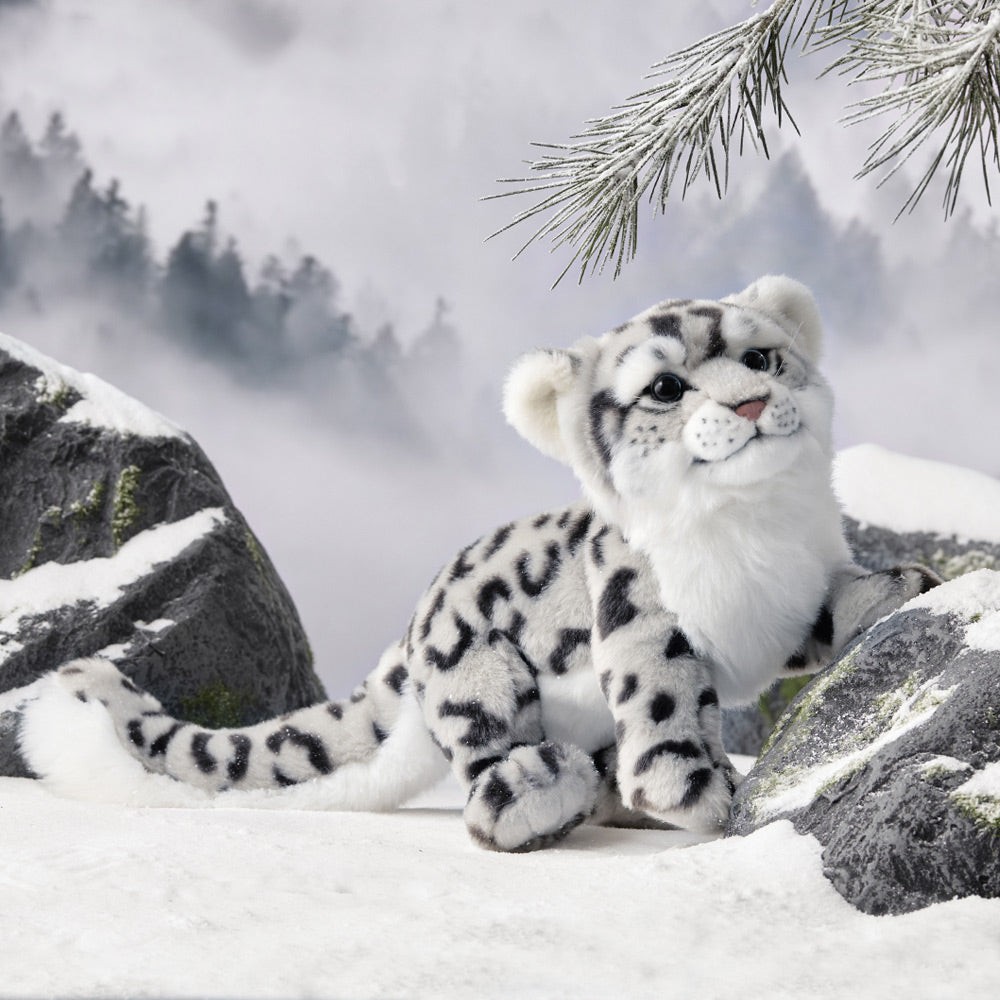Snow leopards are majestic creatures, often romanticized for their elusive nature and stunning beauty in the harsh, high-altitude environments they call home. With their thick fur, piercing eyes, and powerful build, it’s easy to see why some might be captivated by the idea of owning such an exotic animal. But when considering the reality of keeping wild animals, especially apex predators, a crucial question arises: Can A Snow Leopard Be A Pet?
The answer, unequivocally, is no. Several critical factors make snow leopards utterly unsuitable and illegal to keep as pets. Understanding these reasons is essential for appreciating these animals in their natural habitat and respecting wildlife conservation.
Understanding Snow Leopards: More Than Just Big Cats
Before delving into why they can’t be pets, it’s important to understand what snow leopards are. Scientifically known as Panthera uncia, these magnificent cats are native to the mountain ranges of Central and South Asia. They are perfectly adapted to survive in cold, rugged terrains, a far cry from a typical domestic environment.
Wild Nature and Needs
Snow leopards are apex predators at the top of their food chain. In the wild, their diet primarily consists of wild sheep and goats like bharal, argali, and markhor. They are powerful hunters, capable of taking down prey much larger than themselves. Their natural instincts are geared towards survival in the wild – hunting, roaming vast territories, and competing for resources. These are behaviors and needs that simply cannot be replicated or satisfied in a domestic setting.
Apex Predators and Danger
As apex predators, snow leopards possess immense strength and sharp predatory instincts. While they are generally elusive and avoid humans in the wild, their powerful build and natural aggression as hunters pose significant safety risks. Confining such an animal in a home environment is not only stressful for the snow leopard but also inherently dangerous for humans. Their size, strength, and natural predatory behaviors make them unpredictable and potentially lethal in close proximity.
Conservation Status and Legal Protection
Snow leopards are currently listed as Vulnerable on the IUCN Red List. Their global population is estimated to be less than 10,000 mature individuals, and numbers are still declining due to poaching and habitat loss. Because of their vulnerable status, snow leopards are protected by international and national laws in their range countries. Owning a snow leopard is illegal in virtually every part of the world. These legal protections are in place to prevent further decline of their wild populations and to deter illegal trafficking.
 Snow Leopard resting on rocks
Snow Leopard resting on rocks
Why Snow Leopards Are NOT Pets: Ethical, Safety, and Legal Barriers
The idea of keeping a snow leopard as a pet clashes with numerous ethical, safety, and legal realities:
Ethical Concerns: Wild Animals Belong in the Wild
Keeping a snow leopard as a pet is fundamentally unethical. These animals are adapted to a wild existence and have complex needs that cannot be met in captivity, especially in a home environment. Confining a snow leopard deprives it of its natural behaviors, social interactions (snow leopards are solitary animals but still require natural space), and the ability to thrive in its natural habitat. Ethically, wild animals should remain in the wild.
Safety Risks: For You and the Animal
Attempting to keep a snow leopard as a pet poses serious safety risks. Even if raised from a young age, their wild instincts remain. Their powerful claws and teeth, combined with their unpredictable nature, make them dangerous. Furthermore, improper care in a domestic setting can lead to health problems and stress for the snow leopard, potentially increasing aggressive behaviors. It’s a dangerous situation for both the animal and any humans in the vicinity.
Legal Barriers: Wildlife Protection Laws
As mentioned earlier, owning a snow leopard is illegal due to conservation laws. These laws are in place to protect endangered and vulnerable species from exploitation and to preserve biodiversity. Attempting to own a snow leopard would not only be unethical and dangerous but also a criminal act with severe legal consequences, including hefty fines and potential imprisonment.
In conclusion, while the allure of owning a snow leopard might stem from admiration for these magnificent creatures, the reality is starkly clear: snow leopards cannot be pets. It is illegal, unethical, and incredibly dangerous. Instead of seeking to own a wild animal, our efforts should focus on supporting conservation efforts that protect snow leopards in their natural habitats, ensuring their survival for generations to come. If you are looking for a cuddly companion, consider a Snow Leopard Plush Toy as a responsible and safe alternative to appreciate the beauty of these animals.